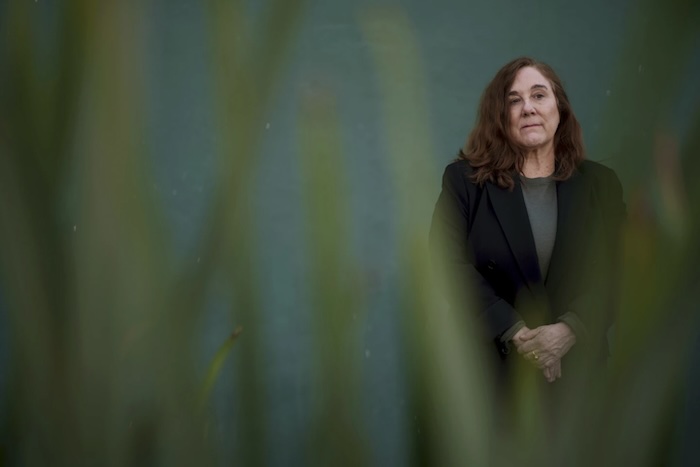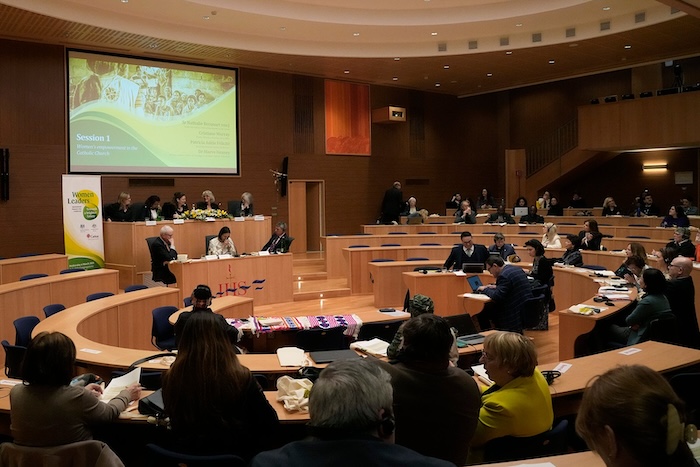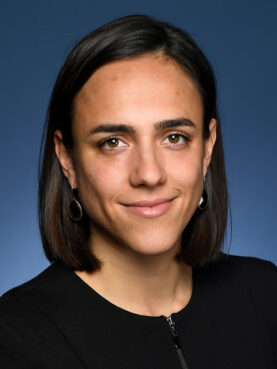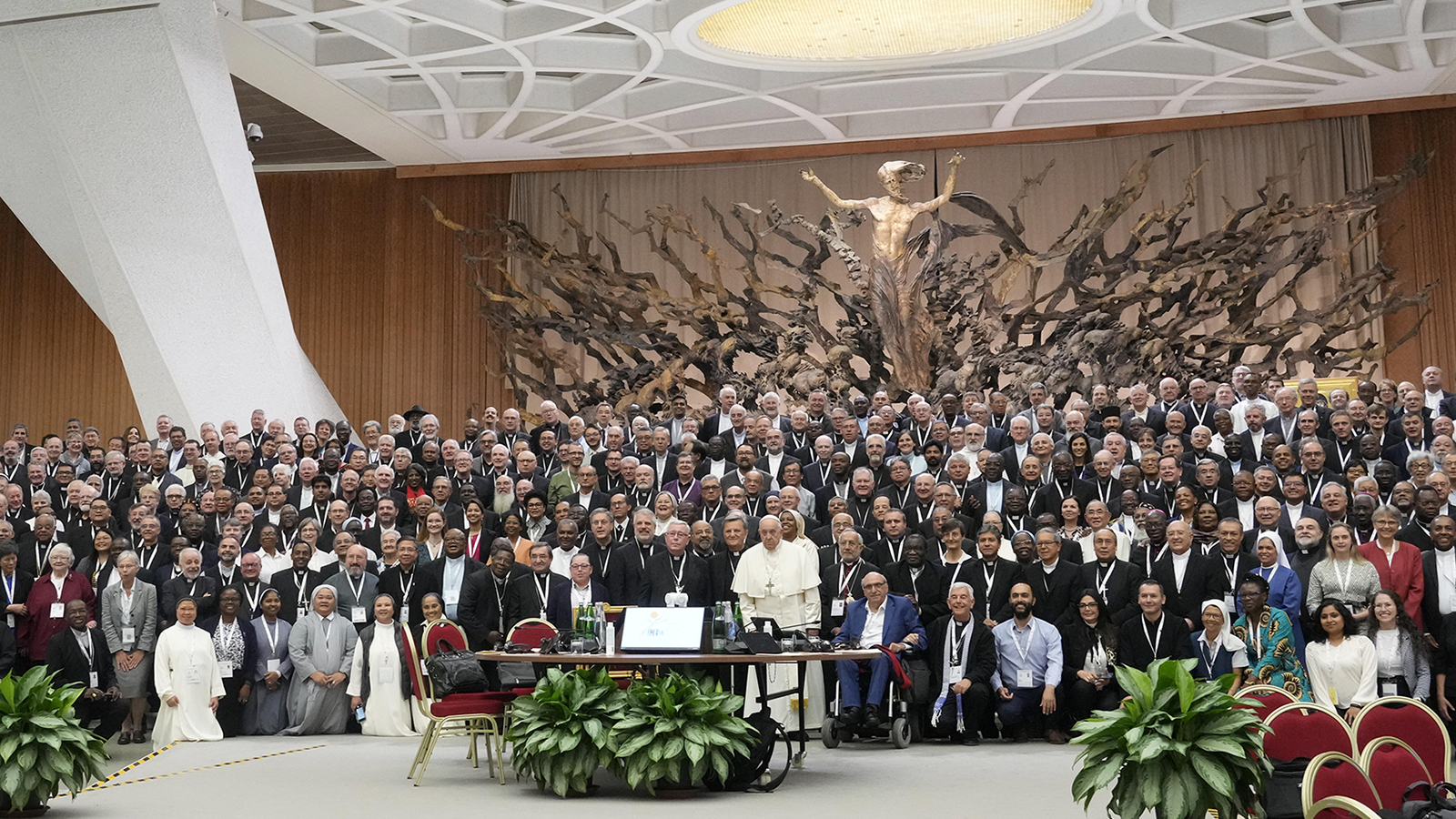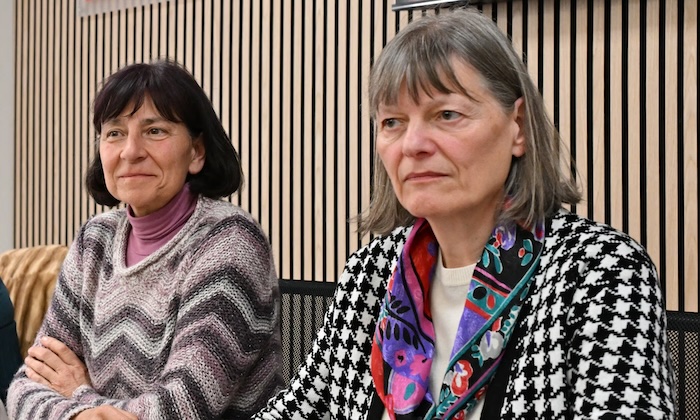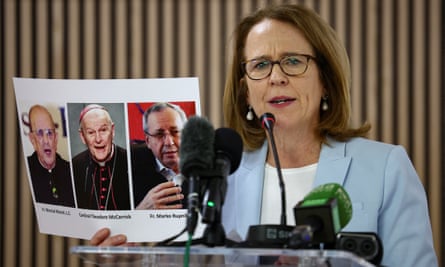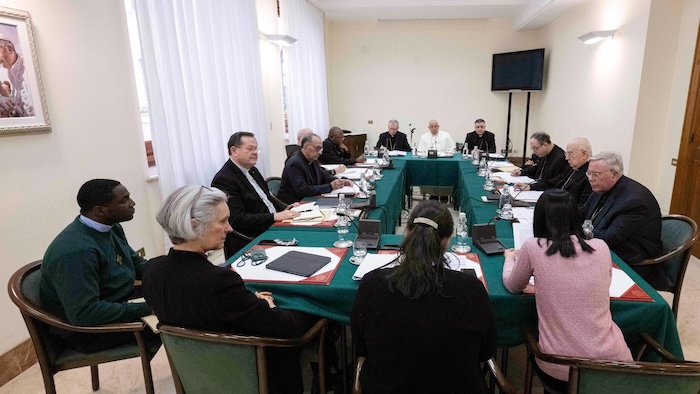— Why We Can’t Make Up Our Minds About Nuns.

In uncertain times, religious sisters are often invoked as vessels for collective doubt.
From Chaucer’s supercilious Madame Eglantine in “The Canterbury Tales,” with her spoiled lap dogs and secular French airs, to Ryan Murphy’s ruthless Sister Jude in 2012’s “American Horror Story: Asylum,” a woman who wears a red negligee under her habit and is not above indulging in some communion wine, fictional portrayals of nuns have long captured and confounded the imagination. How could it be otherwise? The sisters’ vows of chastity and poverty and the air of secrecy that shrouds their cloistered lives are all intriguingly antithetical to modern Western values of sex, money and fame. Many of us have also encountered nuns in our actual lives — I spent much of fourth grade facing a corner of the classroom at the punitive behest of Sister Rosalia — and are left with what I’d call a primal fascination. But if the aesthetic interest in nuns is an enduring one, it’s also true that every few years, like fashion trends or viral flus, nuns have a particularly concentrated cultural moment. We’re living in one now.
Perhaps the starkest, knottiest contemporary depiction of nuns is the playwright John Patrick Shanley’s “Doubt: A Parable.” First staged on Broadway in 2005, it recently wrapped another run there, directed by Scott Ellis. (Three of the cast members have been nominated for Tony Awards.) The play tells the story of the iron-fisted Sister Aloysius (Amy Ryan in Ellis’s revival), the principal of a Bronx Catholic school in 1964, who, based on the hunch of a guileless novice, Sister James (Zoe Kazan), accuses Father Flynn, the parish priest (Liev Schreiber), of making advances toward the school’s only Black student (whose mother was played by Quincy Tyler Bernstine). It’s a detective drama with no resolution, a morality tale with an insoluble ambiguity at its heart. Ellis says he was drawn to stage the play because its titular emotion feels more crucial than ever in our increasingly polarized world. “Given everything that we are in society right now, the black and white of it all, the red and the blue,” he says, “doubt is the most important place to live.”

Rebecca Sullivan, the author of the 2005 book “Visual Habits: Nuns, Feminism and American Postwar Popular Culture,” says that “in times of deep doubt,” we tend to see cultural representations of nuns crop up. She notes that the cascade of nunsploitation films of the 1960s and ’70s — a campy, provocative, mostly European cinematic subgenre in which nuns are sexualized, tortured or possessed — occurred at a time of great social upheaval. Second-wave feminism was afoot, secularism was on the rise and the Second Vatican Council, held between 1962 and ’65, had ushered in numerous church reforms: Nuns, for example, were encouraged to get out of the convent and serve the community and were no longer required to wear habits. The liminal status of sisters — they were independent women who also exhibited a “subversive subservience,” as Sullivan puts it, to a patriarchal institution — made them rich and complex symbols, ciphers for exploring the era’s feelings about women at large.
We’re in another profound period of disruption, particularly when it comes to women’s rights and roles: Roe v. Wade has been overturned; tradwifery is a trend. And thus we’ve seen a new spate of arty nunsploitation films, with “Immaculate” (2024), starring Sydney Sweeney, being the latest. (Others include Paul Verhoeven’s 2021 erotic lesbian nun satire, “Benedetta,” and Rose Glass’s taut 2019 psychosexual horror, “Saint Maud.”) Directed by Michael Mohan, “Immaculate” follows a devout Midwestern novice, Sister Cecilia, who arrives at a gloomy convent in the remote Italian countryside and mysteriously becomes pregnant, leaving church elders to conclude that she’s carrying the savior. In a turn reminiscent of “Rosemary’s Baby,” the sinister Father Tedeschi more or less imprisons Cecilia in the dark, labyrinthine building. For all its gory, sexy-nun fun, the film raises all-too-familiar questions about female bodily autonomy in oppressive male institutions. But this nun, a feminist heroine for the 21st century, is the agent of her own destiny: Unlike so many sisters in the first wave of nunsploitation films, she frees herself.

It’s a fantasy of escape; the plight of young women imperiled by the church has usually been much darker. The legacy of Ireland’s Magdalene laundries and mother and baby homes — in which women and girls were made to labor without pay, or even surrender their children, often under the direction of nuns — is the subject of two new cinematic productions. “The Woman in the Wall,” a gothic six-part BBC drama, which aired in the United States earlier this year, follows a traumatized survivor (played by Ruth Wilson) as she searches for her missing daughter. And “Small Things Like These,” the film adaptation of the Irish writer Claire Keegan’s 2020 novella of the same name, stars Cillian Murphy as a coal merchant in a small Irish town who discovers that the local convent is a Magdalene laundry and is forced to make a fateful choice. A third, “The New Boy,” a quiet, dreamlike movie released last year, likewise highlights the misdeeds of the Catholic Church, but in 1940s Australia. It features Cate Blanchett as Sister Eileen, a wimpled, tippling nun on a mission to assimilate her young Aboriginal charges, who have been forcibly removed from their families by the state.
For years, the Magdalene laundries, which operated from the mid-18th century until 1996, were met with a “code of silence,” says Joe Murtagh, the creator of “The Woman in the Wall.” But in recent decades, the Irish government and the Catholic Church in Australia have both publicly apologized for these chapters of their respective pasts, joining Catholic institutions throughout the world in grappling with centuries of abuse. This reckoning is arguably why real-life nun horror stories are surfacing now: In these depictions, inspired by actual events, nuns are no longer cartoonish saints or sexualized victims but often perpetrators of violence. As a genre for exploring this history, “horror comes to mind naturally,” says Murtagh, “because it’s horrific.”
Complete Article ↪HERE↩!

